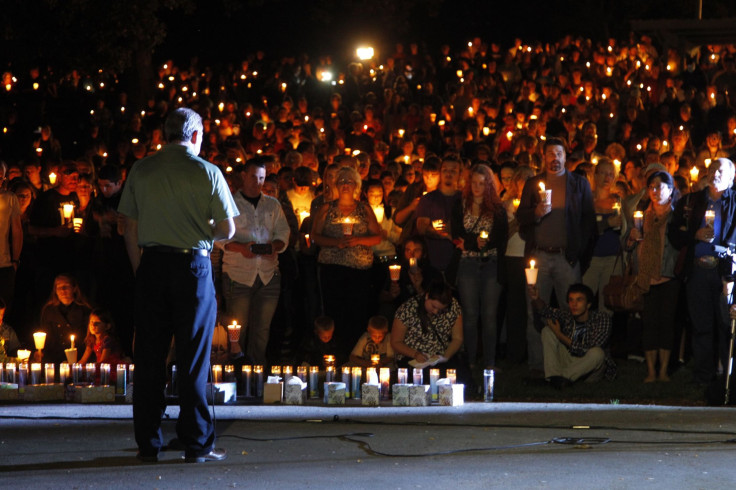Oregon Campus Shooting: Gun Control Laws Tightened Less Than 2 Months Before Umpqua Community College Attack

Thursday’s shooting at a college campus in southwest Oregon, in which at least 10 people were killed and seven others wounded, occurred less than two months after the Northwestern state tightened its gun control laws. The new regulation, which took effect Aug. 9, requires universal background checks for all firearm sales, including private transactions. The legislation has sparked a heated debate between gun-rights activists and groups seeking to quell gun violence in Oregon, and it’s unclear how many law enforcement and firearm dealers are actually enforcing or abiding by the controversial law.
“This is a big cultural change for Oregon,” Dave Piercey, who manages the firearms unit for the Oregon State Police, told the Oregonian in August. Piercey said “we don’t really know” how many more background checks will be conducted in the state.
Oregon Democratic Gov. Kate Brown signed the intensely contentious Senate Bill 914 into law May 11, marking the first time in Oregon that federal background checks for private gun sales were required. Oregon was the 12th state in the country to require universal checks for both handguns and rifles. The criminal and mental health checks are meant to determine whether a person is legally prohibited from owning a firearm for legal reasons including felony convictions, misdemeanor domestic violence convictions or commitments to a mental institution.

However, some local sheriffs and county commissions have refused to enforce the law and private gun sales are particularly difficult to track. Gun owners question why they should be subject to background checks in order to sell, buy, lend and swap guns with their close friends.
"This is the creepiest, rottenest law," Warren Lacasse, owner of The Gun Room in Southeast Portland, told the Oregonian in August, adding that many firearm owners will probably ignore it.
Those who back the new law, however, cited research that found states that require background checks on all handgun sales saw 48 percent fewer gun suicides, 48 percent fewer law enforcement officers killed with handguns and 46 percent fewer women killed by their domestic partners, according to KGW-TV in Portland.
Chris Harper Mercer, the 26-year-old man identified as the gunman in Thursday’s deadly shooting at Umpqua Community College in Roseburg, died after exchanging gunfire with two police officers. It’s not yet known whether Mercer was diagnosed with any mental illnesses, nor how he acquired his firearms.
Neighbors of Mercer, who lived with his mother in Winchester, Oregon, and Torrance, California, recalled a withdrawn, reclusive young man who was close with his mom. “He always seemed anxious,” Rosario Lucumi, 51, who rode the same bus in Torrance as Mercer when she went to work, told the New York Times Friday.
© Copyright IBTimes 2024. All rights reserved.











